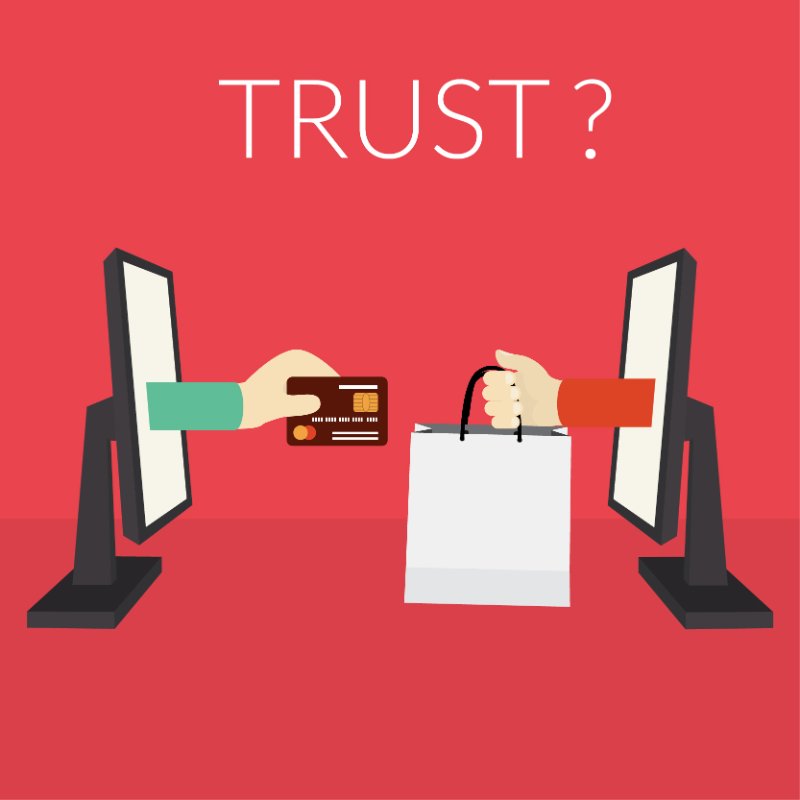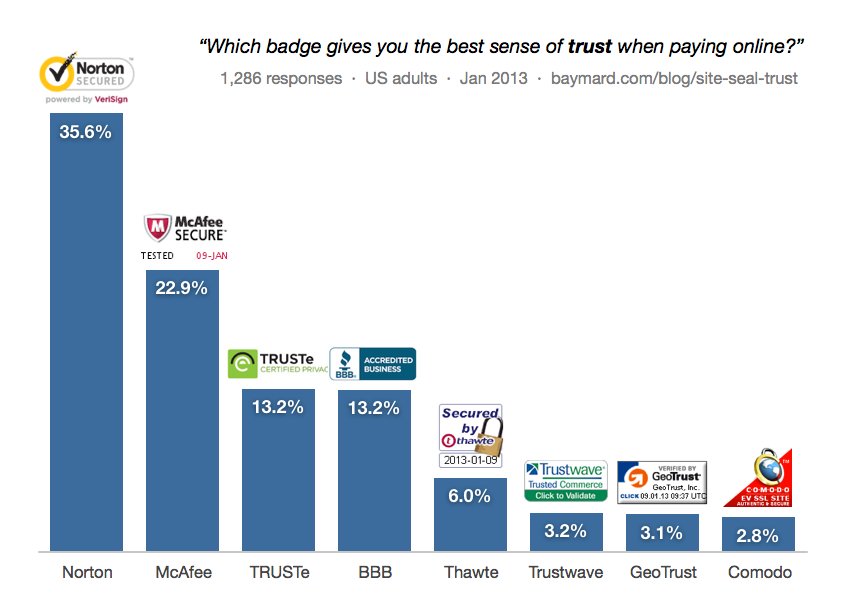Online shopping has become the norm for many customers. In fact, shoppers now make 51 percent of their purchases online versus in store. Despite people shopping online more frequently, if you don’t build trust, they won’t convert into customers for your site. So how do you gauge if they trust you or not?
If you’re a savvy eCommerce store owner, you likely already have Google Analytics implemented so you can see how many people view your site, what words they put into your search box and referrals. You can also see where visitors are exiting. If you notice a higher than average cart abandonment rate or a very high bounce rate, your customers might have some trust issues.
Why Trust Matters for your eCommerce Business
It might seem obvious, but trust is incredibly important for your business. After all, people do business with brands they know, like and trust. If they believe your brand offers good products and services, they are more likely to do business with you and also recommend you to others.

In order to earn trust, you first need to understand what it means. Trust is the belief that someone or something is reliable, good, honest and effective. In essence, if consumers trust a brand, it means they believe the company provides value and delivers on their promises consistently.
It may seem simple, but it’s still incredibly important. Consider this: 70 percent of customers will terminate a purchase if they don’t trust a site. While consumers have ways to protect themselves, such as using Virtual Private Networks to encrypt their data, there’s still a possibility your servers could get hacked. If you have a new eCommerce, it will take some time to build up customer trust; however, there are a few things you should check to make sure you’re sending the right message.
Trust Seals and Security Certification
This might be the most obvious method; however, it provides a huge boost to visitors who are new to your site knowing they can enter their card information with confidence. Interestingly, consumers are more concerned with a brand rather than what the actual seal denotes. For example, consumers ranked sites with a Norton and McAfee seal more trustworthy than others even though these don’t indicate technical security.
Baymard conducted a study on trust seals in 2013 and here are their findings regarding trust seals.
 If you don’t have any of these seals or certifications on your site, you could be scaring away potential customers. In some surveys, as many as 61 percent of participants did not make a purchase because there was no trust seal.
If you don’t have any of these seals or certifications on your site, you could be scaring away potential customers. In some surveys, as many as 61 percent of participants did not make a purchase because there was no trust seal.
Luckily, it’s easy to place a trust seal on your site. For the more popular seals like Norton, you simply pay a yearly fee, and you can then install a Secure Sockets Layer (SSL) certificate on your site. This provides a higher level of data encryption, full business authentication and even daily malware scanning to protect your site from hackers.
Personalized eCommerce Pages
Customers don’t trust brands or sites. They trust people. That means you need to humanize your business. One of the best ways to do this is through your About Us page. Instead of simply presenting information on your company, you should introduce the team and even include a message from the company’s founder or president.
Another great way to reach out to potential customers is through social media. Give them a tour of your office space on Instagram and really show the people behind the business. You could even do a quick behind-the-scenes look at how your products are made. And, of course, always interact with them if they comment or ask questions. All of this provides a strong connection to your brand and the people behind it.

Also, always make sure to include contact information such as employee email addresses, Twitter handles and even LinkedIn URLs. It can go a long way in establishing credibility.
Fresh eCommerce Content, Maintaining a Current eCommerce Blog
There’s a reason no one likes buying cars. The sales representatives are constantly pushing for the customer to spend even more money. If you’re always pushing for a sale, you’ll turn potential visitors away.
Instead, offer up useful information such as tutorials, customer testimonials, highlights on particular employees and so forth on the company blog. You don’t need to update every day; however, it’s important to be consistent and update as often as possible.
A well-maintained blog shows you manage and care for your site and indicates how you will treat prospective customers. If you’ve forgotten about your blog, now is the time to start up a content plan and stick to it.
The best part? If you have really great content, people will share it on their social media, thus increasing name recognition and trust.
Professional eCommerce Designs
Nothing will have customers heading for the hills faster than a site that looks outdated and unprofessional. If you’re noticing a high bounce rate, it might be because the appearance of your site doesn’t instill confidence. You don’t need to be a professional web designer to have an attractive and easy-to-browse layout. There are plenty of free and paid options for various content management platforms. Of course, if you have the option or money, a web designer can really make your site stand out from the crowd.
There are hundreds of other trust signals visitors unconsciously look for; however, by simply having these four things, you will likely see a huge boost in user retention and conversions.

What are some other areas that increases customer’s trust in a brand? Let us know in the comments below.
